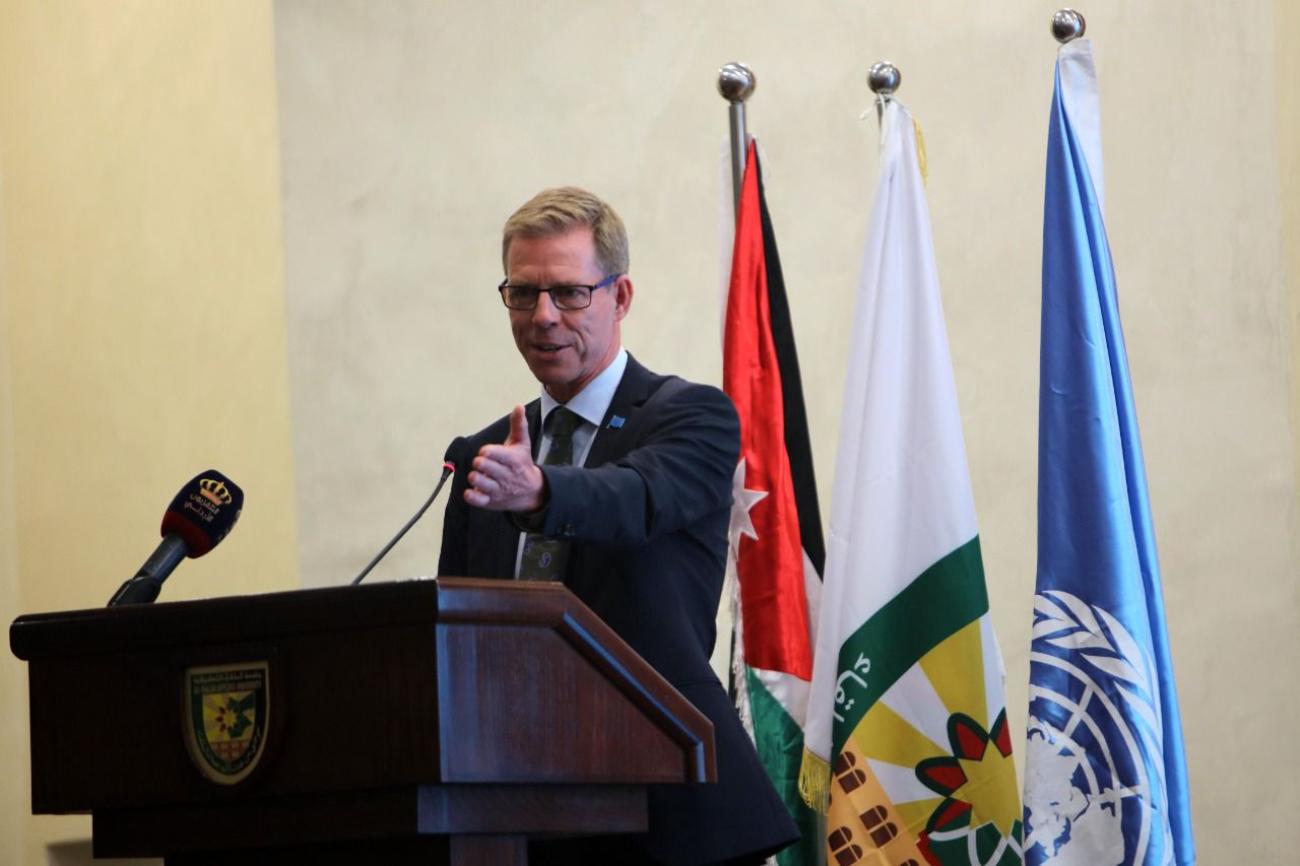A major decline in precipitation and a rise in extreme weather events are harming both water and food security in Middle East and North Africa, including Jordan, which are among the world’s most water-stressed and climate-vulnerable regions, UN Resident and Humanitarian Coordinator Anders Pedersen said on Sunday.
Delivering a speech on the occasion of UN Day, which was hosted by Al Balqa Applied University, RC Pedersen said that the UN has been collaborating effectively to support the Ministry of Environment to advance climate action in the Kingdom.

Photo: © UN RCO- Mohammad Abu Ghosh
Pedersen added that this “collaborative spirit” has resulted in the development of the National Climate Change Policy 2021-2050 under the leadership of the United Nations Development Programme and with valuable contribution from UNICEF, WFP, UN-Habitat and UN Environment.
The UN official noted that the policy aims to achieve a pro-active, climate risk-resilient Jordan, to achieve a low carbon but growing economy, with healthy, sustainable, resilient communities, sustainable water and agricultural resources, and thriving and productive ecosystems in the path towards sustainable development.
“The UN, led by FAO and FAO has supported national efforts in developing the national food security strategy action plan, a sector that will be hugely impacted by the climate change if no proper preparedness plans are in place,” he added.
Pedersen said that this year, “while we are marking the Day, we are focusing on Action for Climate, as UN Secretary General announced 2021 as a ‘crucial year’ for climate change.”
“In a statement early this year, the UN Secretary General stressed that by COP26 [which is taking place next month] at the latest, all countries need to come forward with significantly more ambitious nationally determined contributions, with 2030 targets consistent with a net zero pathway,” the UN coordinator noted.
Since 1948, October 24 has been celebrated as United Nations Day marking the ratification of the UN Charter in 1945, by the majority of signatories, including the five permanent members of the Security Council, according to the statement.
Also speaking during the ceremony, Deputy Prime Minister and Minister of Local Administration Tawfiq Kreishan said that Jordan has realised achievements in adopting partnership frameworks between the public and private sectors in dealing with climate change.
Secretary General of the Environment Ministry Mohammed Khashashneh announced the completion of the update of the “National Policy for Climate Change” that will be referred to the Cabinet for accreditation before embarking on implementing its recommendations.
In this regard, Khashashneh noted that this policy covered a timespan ranging between 2022 and 2050, and provides “a clear vision” to deal with climate change until 2050.
Water Ministry Secretary General Jihad Mahamid warned against the impacts of climate change on water resources in the Kingdom. He expects precipitation to decline by 13.6 per cent or 12.9 millimetres for each year by 2035.
President of Al Balqa Applied University Abdullah Zu’bi talked about the initiatives that the university launched and implemented to contribute to realising the Sustainable Development Goals.






